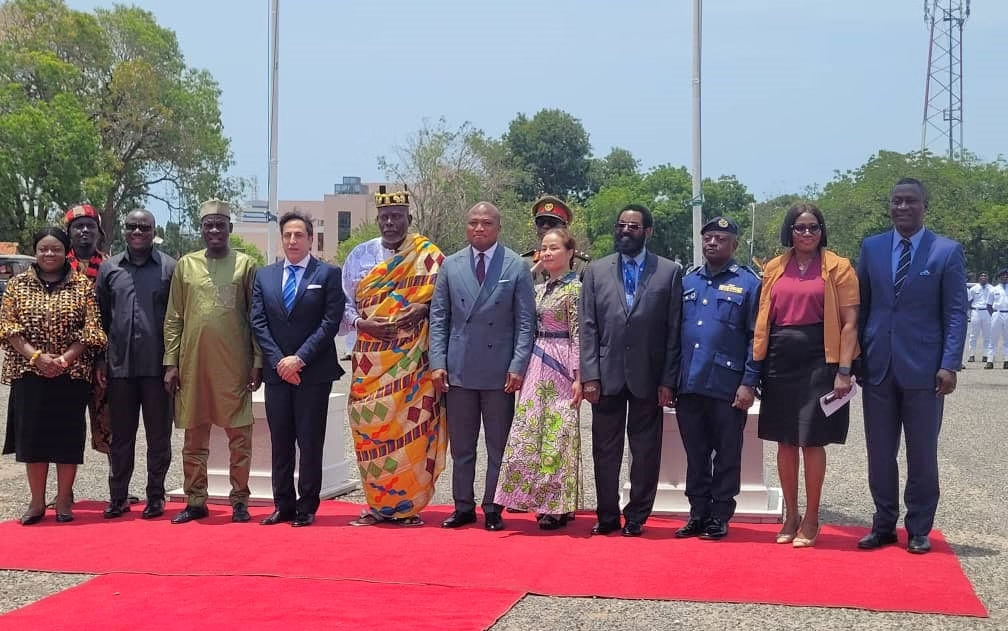In a significant diplomatic development that positions Ghana as a pivotal bridge-builder in West Africa, Foreign Affairs Minister Samuel Okudzeto Ablakwa has announced the country’s strategic plan to leverage its newly acquired full membership in the International Organisation of La Francophonie (OIF). This diplomatic milestone marks Ghana’s emergence as a key facilitator of cross-linguistic cooperation across the African continent.
Ghana’s Vision for Regional Integration
Speaking at the 55th-anniversary flag-raising ceremony of La Francophonie in Accra on Friday, March 21, Minister Ablakwa outlined Ghana’s ambitious vision for fostering deeper connections between traditionally separated Anglophone and Francophone African communities. This initiative represents a bold step toward addressing one of Africa’s most persistent colonial legacies – the linguistic divide that has often hampered continental integration efforts.
“Ghana, under the leadership of His Excellency President John Dramani Mahama, intends to use her new status with the OIF to promote the values and principles that bind us together,” Ablakwa declared to the assembled dignitaries and diplomatic corps. “We reaffirm our commitment to building bridges between Ghana and Anglophone and Francophone communities.”
Advancing Shared Democratic Values
The Foreign Minister emphasized that Ghana’s engagement with La Francophonie extends beyond mere linguistic cooperation to encompass a broader commitment to shared democratic principles. This alignment with the OIF’s core values of democracy, human rights, cultural diversity, and sustainable development positions Ghana as a values-oriented partner in regional affairs.
In his address, Ablakwa highlighted the timeliness of this commitment: “Indeed, in the context of our current regional and global landscape, the promotion of these ideals has become even more imperative.” This statement gains particular significance against the backdrop of democratic challenges in several West African states and rising security concerns across the Sahel region.
Diplomatic Recognition and Regional Impact
Ghana’s achievement of full membership status in October 2024 came after years of engagement as an associate member. Minister Ablakwa acknowledged the crucial support provided by Ambassador Thai Hong Mai, the West African Representative of the OIF, along with her team and various member states who supported Ghana’s application.
Mr. Maher Kheir, Ambassador of Lebanon and President of the Group of Francophonie Ambassadors, offered a compelling assessment of Ghana’s new role, noting that this achievement reflected the country’s genuine commitment to bilingualism, cooperation, and meaningful engagement with the Francophone world.
“More than ever, Ghana is poised to play a key role in ECOWAS and regional diplomacy, bridging the gap between English-speaking and French-speaking African countries,” Ambassador Kheir observed during the ceremony.
Strategic Benefits for Ghana’s Regional Leadership
Ghana’s enhanced status within La Francophonie arrives at a strategic moment when regional cooperation is increasingly vital for addressing shared challenges including:
- Cross-border security threats
- Climate change adaptation
- Regional economic integration through the African Continental Free Trade Area (AfCFTA)
- Cultural exchange and preservation of Indigenous African values
By positioning itself as a linguistic and cultural bridge-builder, Ghana strengthens its diplomatic influence while creating practical avenues for more seamless cooperation between the continent’s Anglophone and Francophone regions.
Conclusion
Ghana’s full membership in the International Organisation of La Francophonie represents far more than a symbolic diplomatic achievement. As Minister Ablakwa’s remarks indicate, it forms part of a strategic vision for enhancing Ghana’s role as a unifying force in West Africa and beyond. By embracing multilingualism and cross-cultural cooperation, Ghana demonstrates a forward-looking approach to regional integration that could help overcome one of colonialism’s most enduring legacies on the continent.



